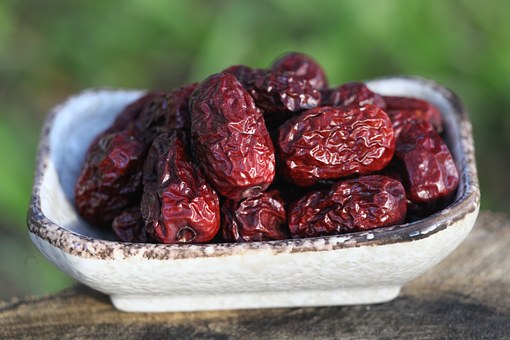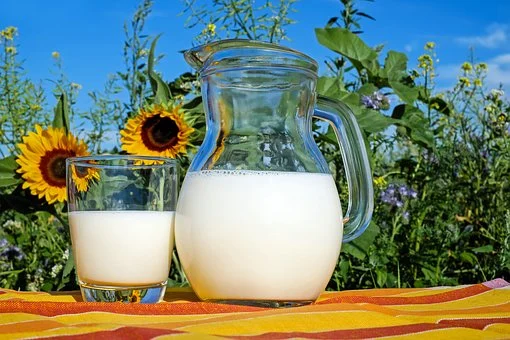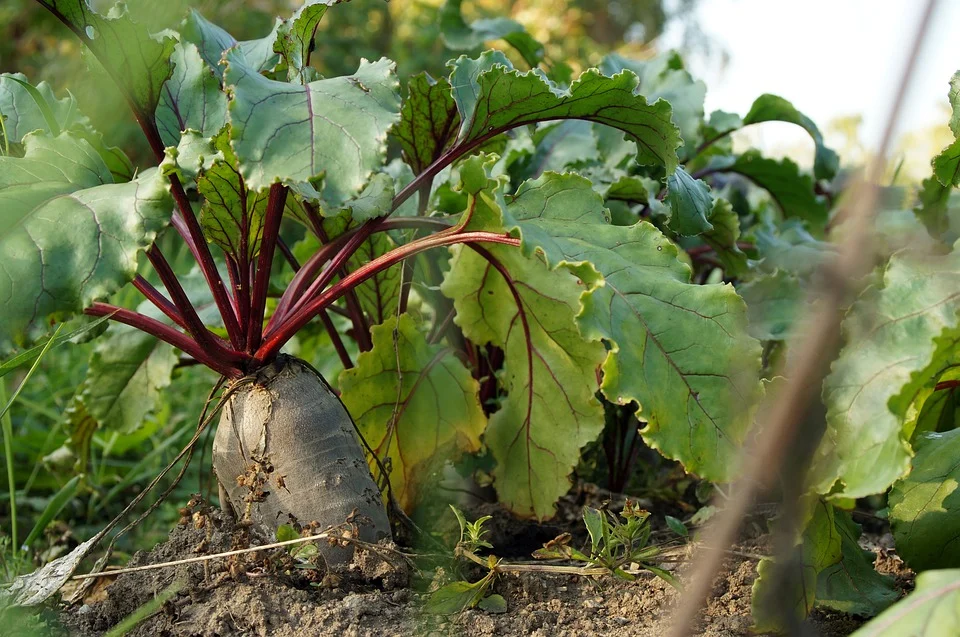Globally, numerous diseases are spreading these days, making people unwell. Living a healthy lifestyle can help prevent chronic and acute diseases.
For a healthy lifestyle, you need to be very careful about what you include in your diet. So, you need to have foods rich in essential nutrients and vitamins, which your body requires.
One of the foods which can be an ideal solution for most of your health issues is dates.
Dates are among the oldest plants on earth and are widely cultivated in Asia, Africa, and the Middle East.
Why are dates good for health?
Dates are beneficial for human consumption as they contain vitamin A, vitamin C, protein, fructose, natural sugar, antioxidants, and a considerable amount of microminerals.
It comprises microminerals such as magnesium, phosphorous, copper, and potassium. Generally, these microminerals are required for immune function, protection against oxidative stress and are an essential constituent of bone, muscle, teeth, hemoglobin, nerve cells & protein synthesis.
- Dates contain dietary fiber, which promotes bowel moment, and in turn, helps in constipation.
- Low sodium and high potassium level in dates are beneficial for a hypertension patient.
- The date is a rich source of iron.
- Improve metabolism as it is rich in phosphorous, magnesium, copper, etc.
- The date is an excellent source of antioxidants.

Nutritional value of dates
It is a crucial food resource for people living in hot and dry climates, as the dates may recover nutritional requirements.
A 100g of dates provide:
- Carbohydrate
- Sugar
- Dietary fiber
- Fat
- Protein
- Vitamin A, B, C, E, K,
- Calcium
- Iron
- Magnesium
- Potassium
- Phosphorus
What are the edible parts of dates?
Dates plants are tall, bright red & sweet in taste. Dates are the concentrated form of sugar. On drying, their sugar becomes more concentrated and sticky, also the nutritional value increases. The other edible parts of the date palm tree include:
- Dry fruit-Pitted dates are partly dried dates filled in glucose syrup.
- Dates seed- the oil contains lauric acid and oleic acid, these are beneficial for cosmetic prepration.
- Dates flowers- these are also edible, used in salad. Moreover, young date leave are also nutritional and can be added in vegetables.
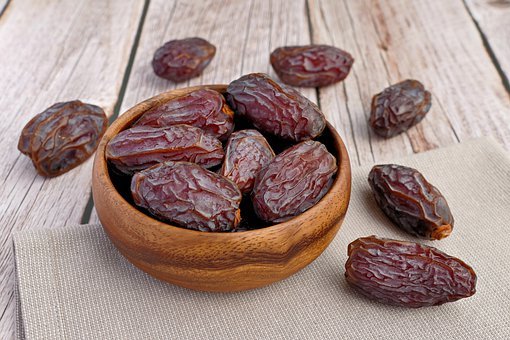
What are the health benefits of dates?
Dates, due to their naturally sweet taste, can be a good substitute when added to puddings and sweet dishes. In fact, you can have fresh dates syrup with added flavor. Apart from its taste, dates are beneficial for various health issues. So, let’s go through the important benefits of dates on human well-being.
Improve digestive health
According to researches, dates improve digestive health as dates are a good source of natural prebiotics and also act as a laxative.
Apart from this dates contain soluble fiber, and fiber supports digestive health by adding bulk to the stool. Thus, it promotes healthy bowel moments, which eventually help people suffering from constipation and irregular bowel syndrome.
Promotes normal delivery
From ancient times it is believed that having dates daily by pregnant women promotes natural delivery. In addition, scientific research suggests having dates during the 2nd & 3rd trimester facilitates smooth delivery by reducing the oxytocin demand. As a compound present in dates mimic action same as oxytocin which reduces contraction.
So, if you are in your 3rd trimester of pregnancy, try consuming 2,3 dates daily for unmedicated normal delivery.
Iron deficiency anemia
It is a crucial mineral for all of us specially, pregnant women, kids, and the elderly. Iron deficiency is very common in these categories. Iron helps in the formation of hemoglobin and further in RBC. Whereas, both dry and fresh dates are an excellent source of iron.
Degenerative disease
These diseases are progressive degenerative changes in the body cells and tissue. Diseases like diabetes, cataract, aging, cancer, osteoarthritis, brain dysfunction, Alzheimer’s increasingly deteriorate over time.
The date is rich in antioxidants like flavonoids, phenolic acid, and carotenoids that reduce inflammation and oxidative stress. Having dates regulerly reduces further risk of degenerative diseases.
Increases immunity function
Dates contain high phenolic content which can play an important role in the prevention of various inflammatory and allergic reactions, as they act by suppressing the hypersensitive immune response.
In addition, they also show an anti-allergic immunomodulatory response.
Potent source of nutraceuticals
According to experts, dates are medicinally active functional food, as it is rich in a health-promoting compound such as antioxidants, vitamins including B complex, calcium, iron, magnesium, selenium, carotenoids. Thus, they have a huge potential as dietary supplements. Apart from providing essential nutrients, dates reduce the risk of anemia, hypertension & hemorrhoids.
Edible quantity of dates, perday/ perdiet
The date is a functional food and is highly recommended by health practitioners due to its nutritional composition.
Moreover, a handful of dates or a 100gm date can meet our daily nutritional requirements.
When not to eat dates?
Eating dates are safe for most people, but you should have a daily dosage as per requirement. The main exception is for the following circumstances:
- Excessive intake of dates may trigger bowel moments which may lead to diarrhea.
- Due to high potassium content, excessive consumption may lead to nausea, loss of consciousness.
- It may increase weight.
- Although, dates are low in sugar content but have a considerable amount that may hike insulin levels, that’s why sugar patients are advised to have it cautiously.
- It may trigger an asthmatic attack.
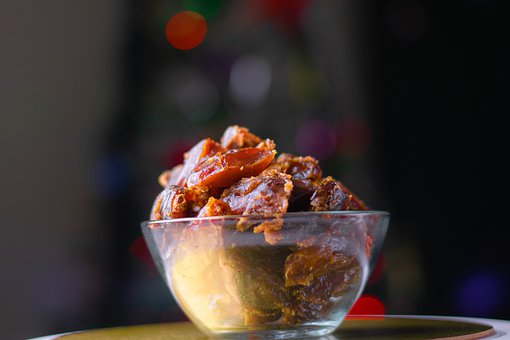
How to consume dates?
Dates could be the best sugar substitute, especially for kids and the elderly. So, You can either eat it as a whole fruit or include it in your sweet dishes. Moreover, we can use dates for the preparation of varieties of recipes like caramel, dates sweet, dates jam, date syrup, they are also in trend for dressing and garnishing of dishes.
